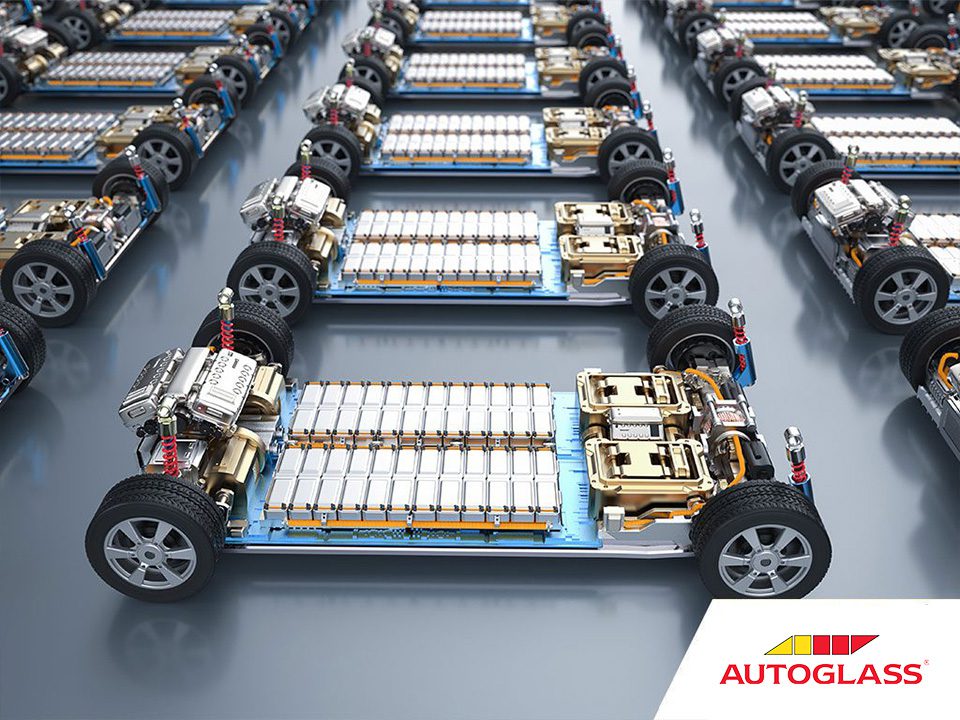
Common Misconceptions About Electric Vehicles
The advantages of electric cars can be too often overshadowed by a number of common misconceptions regarding their shortcomings. With global temperatures rising and fuel costs spiraling, more and more motorists are tempted by the prospect of making a move to an electric vehicle but feel understandably trepidatious due to the misinformation surrounding electric vehicles. With that in mind, we here at Autoglass® thought it might be beneficial to tackle some of these criticisms head on and see just how they stand up to some scrutiny. Thinking about investing in a new or used electric car but feeling a little unsure? You’ve come to the right place!
Electric Vehicles are too expensive
It is true that the initial purchase price of new electric cars can be a bit higher than that of their petrol or diesel equivalent. But keep in mind that the Irish government also currently offers tax incentives and electric car grants that help offset the cost of purchasing the car. Depending on the car you’re purchasing, you stand to receive a grant of up to €5,000 towards the cost when purchased privately. Click here for more information about the Irish Government’s EV grant Scheme.
Also there are further financial incentives to consider when purchasing an electric vehicle. The level of direct CO2 emission levels from your car is a key consideration when determining your Vehicle Registration Tax (VRT) along with the amount of Motor Tax you will be required to pay annually. If you choose to purchase a fully electric vehicle which produces no tailpipe emissions, your Motor Tax should come in at about €120 each year. Considerably less than what you would expect to pay for a petrol or diesel car.
Between cheaper fuel, lower running costs, tax savings and the potential for grants, the higher original purchase price will be more than made up for over the lifetime of your EV car.
Electric Cars are not powerful enough
It’s not uncommon for people to assume that electric cars are not as powerful as petrol-engine cars, but this is not necessarily true. The Electric motors found in modern EVs can provide instant torque, which means that electric cars can have excellent acceleration and performance. In fact, there are no shortage of fast electric cars on the market today with many boasting better acceleration than their petrol-powered counterparts.
There aren’t enough public charging points across Ireland
As it stands there are over 2,400 public charging points spread across Ireland with more on the way. The government’s Climate Action plan has established a target of having over 945,000 EVs on Irish roads by 2034. As part of this plan, we can expect to see continuous improvement of that infrastructure over the next decade. It is only going to get easier to find a public charging point in the coming years.
Electric Vehicles are not very well suited to long journeys
The vast majority of modern electric cars (and even many used electric cars) have a range of somewhere between 200 and 500 kilometres on a full charge. It almost goes without saying that this is more than sufficient for most people’s daily driving needs. In fact, electric cars with a 500km range are well able for a journey from Dublin to Galway and back again on a single charge. Frankly, it’s worth considering how much long-haul driving you really do. Statistics suggest that nearly 70% of car journeys that we make every year are less than eight kilometres. This should give you pause to consider just how wide an electric car range you really require. Additionally, as we outlined above, Ireland’s electric vehicle charging infrastructure is set to improve by leaps and bounds in the near future, making it even easier to recharge when away from home should your battery start to get low.
The battery will need replacing after 5 years
As of the year 2023, there are well over 10 million EVs in use worldwide. There is no evidence to suggest the lifespan of electric cars is any different from that of their petrol or diesel counterparts.
Most EVs out there on the market offer an eight to ten year warranty, but can often last much longer. In Ireland, the average age of a vehicle on our roads is just under 9 and a half years, so the notion that an EV’s lifespan is lower than their petrol or diesel counterparts is simply not true; in fact, because there are far fewer moving parts when compared with a combustion engine, EV motors are subject to much less wear-and-tear.
The process of building an Electric Vehicle generates more greenhouse gas emissions than it saves
This long standing myth surrounding Electric Vehicles has been thoroughly debunked by a myriad of well-respected studies.
A brand new battery-powered electric vehicle produces about a third of the lifetime greenhouse gas emissions of an equivalent petrol vehicle. Crucially, these figures also take into account the emission associated with battery production and disposal. With that said, with each passing year EVs are also getting progressively cleaner as the international electricity generation infrastructure becomes less carbon dependent. Additionally, electric cars produce zero emissions while driving, reducing air pollution.
Batteries cannot be recycled and will all end up in landfill
There is no truth to this common misconception surrounding electric vehicle batteries. Existing regulations ban the disposal of EV batteries in landfills or by incineration. Car manufacturers are obligated to take back EV batteries free of charge and ensure they are disposed of responsibly in facilities that meet the required recycling efficiency standards.
EVs cannot be driven or charged in the rain
It’s hard to make sense of how this particular rumour about Electric Vehicles managed to gain such traction. Every EV on the market today has to adhere to a set of tough technical rules relating to crash and electrical safety. Accordingly, all modern EVs are safe to drive and charge in a wide range of weather conditions.
It takes too long to charge an EV
The vast majority of EV charging traditionally happens at home overnight. These night charges should be more than ample to cater to the needs of the majority of motorists. However, if you do need to charge your Electric Vehicle when you are away from home, newer EVs are often capable of charging over 190km in as little as 20 minutes, making them a more convenient option than ever before. Also, rapid charging points are appearing all over the country, so you’re likely to have a speedy option close by. It’s also worth keeping in mind that the last few years have seen charging speeds increased by a factor of 5 as more and more businesses have rightly recognised EVs as the future of motoring.
Having taken the time to thoroughly debunk the misconceptions listed above, we hope you’re feeling more confident about investing in an Electric Vehicle. The benefits of Electric cars are clear as they are not only unquestionably better for the environment, but they also offer exemplary performance and top-notch driving experiences. Check back with the Autoglass® blog soon for more deep dives, explainers, tips and guides like this one.
Book an appointment now
For a quick and easy way to make an appointment book online now.
